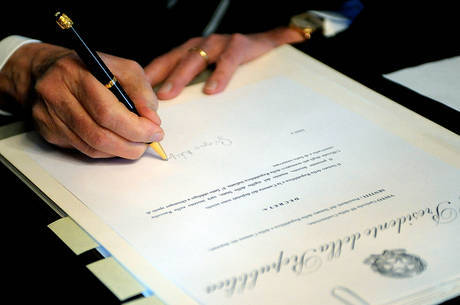Italy, Elections Scheduled for April 13 and 14
The initial concern of parties on both the center left and center right appeared to be to present coalitions or electoral slates which did not appear to be a political potpourri of sometimes conflicting political priorities.
This had been the greatest handicap for outgoing Premier Romano Prodi in his 21-month government which included hardline communists and devout Catholics, as well as seesaw centrists who in the end were responsible for bringing the government down.
The most radical approach so far has come from Rome mayor Walter Veltroni who wants his newly formed Democratic Party (DP), born from the merger of the Democratic Left and centrists Daisy parties, to stand alone in the elections without its former allies on the far left.
This has been viewed as political suicide by his critics on the left because Italy's current electoral law awards a 'majority prize' to the winning coalition which guarantees it 55% of the seats in the House.
However, Veltroni on Wednesday stuck to his guns and said that ''Italy has the right to have something new in order to emerge from a period of political conflict, division and inertia''.
''We have 65 days before the elections to turn the page and that is precisely what the PD intends to do,'' he added.
''What we intend to do has never been done in Italy. When a citizen votes for the PD, they will clearly know what its positions are and this will eliminate the need to mediate between 18 parties,'' the Rome mayor said.
However,Veltroni has opened the door to other parties to join the DP in an explicit alliance based on the DP's platform. Veltroni has challenged the biggest party in the center right, ex-premier Silvio Berlusconi's Forza Italia, to follow the DP's example but there appears little likelihood it will.
It also appears highly unlikely that Berlusconi, 71, will follow the example of 69-year-old Prodi, who announced Wednesday that he would not stand for re-election in order to make room for a younger generation of leaders. The center right also has problems with its minor parties, some of which are splinter groups from the original House of Liberties coalition: Forza Italia, the National Alliance, the Union of Christian Democrats (UDC) and the devolutionist Northern League.
The National Alliance has already made it clear that it does not want to be on the same ticket as tiny parties like The Right of his former lieutenant Francesco Storace or the centrist Udeur of ex-justice minister Clemente Mastella, whose defection from the center left last month brought down brought down Prodi's government.
Similar views have been expressed by UDC leader Pier Ferdinando Casini and the Northern League.
In order to overcome this obstacle, some pundits believe Berlusconi will push for a slate with the original House of Liberties members, while he will incorporate the smaller party leaders under the Forza Italia banner.
He will be facilitated in doing this by the current election law, pushed through by the Berlusconi government in the previous legislature, which has parties presenting fixed lists of candidates chosen by the party. Voters thus cast ballots for the party and not the candidate.
All efforts to change the law before parliament was dissolved failed because of Berlusconi's insistence on voting with his law.
The first real political skirmish of the election campaign has been over the possibility of staging general elections and partial local administrative elections at the same time.
Prodi and the center left are in favor of this while the center right is opposed.
Observers noted that the reason for this may be the fact that the center left generally does better in local elections and may want a much needed boost.
However, for the center left the official reason for an 'election day' is to save the taxpayers' money and the voters' time, with fewer trips to the ballot box.
A decision on grouping the votes together will be made this week or next.
(ANSA News)


































i-Italy
Facebook
Google+
This work may not be reproduced, in whole or in part, without prior written permission.
Questo lavoro non può essere riprodotto, in tutto o in parte, senza permesso scritto.